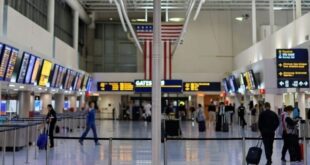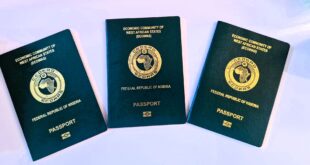Beginning from June 2025, the United States has imposed strict entry restrictions on nationals from many countries across the globe, some of them African.
These measures, whether total or partial bans, affect travel for tourism, business, study or family visits, and are already having serious implications for millions of people.
According to multiple news sources, the US government is preparing to significantly expand its travel ban to include citizens from 36 additional countries, with 25 of them in Africa. This marks a dramatic escalation in American visa policy, following a June 2025 order that already barred entry to nationals from 12 countries and partially restricted seven others.
If the move is implemented, it would mean that nearly one-fifth of the world’s population lives in a country affected by a US travel ban, a development with potentially serious consequences for African citizens, businesses and families.
Who is already Banned?
As of June 2025, the US government has completely barred entry to citizens of the following 12 countries, whether as immigrants or non-immigrants:
- Afghanistan
- Myanmar
- Chad
- Republic of the Congo
- Equatorial Guinea
- Eritrea
- Haiti
- Iran
- Libya
- Somalia
- Sudan
- Yemen
These bans apply to individuals who were outside the US and did not have a valid visa as of 9 June 2025.
In addition, the US has imposed partial bans on seven other countries, where only limited categories of visas —such as some temporary work visas — are still being issued:
- Burundi
- Cuba
- Laos
- Sierra Leone
- Togo
- Turkmenistan
- Venezuela
For these countries, entry is fully suspended for immigrants, and partially restricted for non-immigrants (specifically for B-1, B-2, F, M, and J visa categories). Other non-immigrant visa categories may also face additional limitations, such as reduced visa validity periods.
These restrictions, according to the US government, are meant to protect the country from what it calls “foreign terrorist threats” and to encourage compliance with international passport and immigration standards.
The bans do not apply to lawful permanent residents (Green Card holders), dual nationals travelling on a passport from a non-restricted country, certain diplomatic visa holders or individuals seeking asylum or refugee status.
The Next Wave: 36 additional countries at risk
Now, according to internal US government documents leaked to the press and confirmed by AFP and The Washington Post, the Trump administration is considering expanding the travel ban to 36 additional countries. Alarmingly, 25 of these countries are in Africa. This means nearly one-fifth of the world’s population could soon be affected by US entry restrictions.
Below is the full list of countries reportedly being considered for the expanded ban, grouped by continent:
- Africa (25 countries)
Angola
Benin
Burkina Faso
Cameroon
Cape Verde
Democratic Republic of the Congo
Djibouti
Egypt
Ethiopia
Gabon
Gambia
Ghana
Ivory Coast (Côte d’Ivoire)
Liberia
Malawi
Mauritania
Niger
Nigeria
São Tomé and Príncipe
Senegal
South Sudan
Tanzania
Uganda
Zambia
Zimbabwe - Asia (4 countries)
Bhutan
Cambodia
Kyrgyzstan
Syria - Caribbean (4 countries)
Antigua and Barbuda
Dominica
St. Kitts and Nevis
St. Lucia - Pacific Islands (3 countries)
Tonga
Tuvalu
Vanuatu
What does this mean for Africa?
If the expanded travel ban goes into effect, it would affect millions of Africans — including students, tourists, entrepreneurs, artists and people visiting family members. Countries like Nigeria, Ghana, Ethiopia and Egypt have large diasporas in the US and maintain active exchanges in education, business and diplomacy. These bans could severely limit opportunities and disrupt families and economic ties.
The reported memo, signed by US Secretary of State Marco Rubio, gives the affected countries a 60-day window to address Washington’s concerns. These include:
- Poor passport security
- Inadequate visa tracking
- Failure to accept deported nationals
- Security risks such as terrorism or organized fraud
If these countries do not show “sufficient progress” within the deadline, the ban could be implemented as early as mid-August 2025.
What Next?
Analysts are urging African governments to address the concerns raised by the United States, while others are calling on civil society organizations and the African Union to advocate strongly for fairer immigration policies that do not penalize entire populations. In an opinion piece for this publication, Collins Nweke, a Belgian-Nigerian public affairs analyst, outlines how the Nigerian government — as well as other African nations — can respond strategically to the development and place the interests of their citizens at the forefront.
Femi Awoniyi
![]()
 THE AFRICAN COURIER. Reporting Africa and its Diaspora! The African Courier is an international magazine published in Germany to report on Africa and the Diaspora African experience. The first issue of the bimonthly magazine appeared on the newsstands on 15 February 1998. The African Courier is a communication forum for European-African political, economic and cultural exchanges, and a voice for Africa in Europe.
THE AFRICAN COURIER. Reporting Africa and its Diaspora! The African Courier is an international magazine published in Germany to report on Africa and the Diaspora African experience. The first issue of the bimonthly magazine appeared on the newsstands on 15 February 1998. The African Courier is a communication forum for European-African political, economic and cultural exchanges, and a voice for Africa in Europe.



































